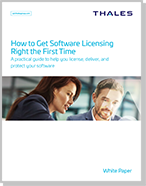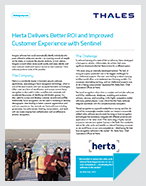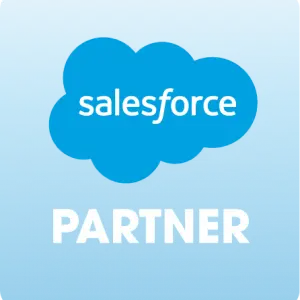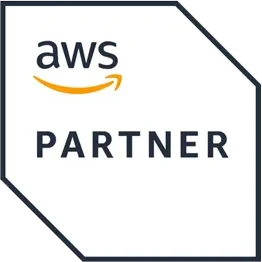 Every piece of software, no matter what it is, comes with a license. The license states what can and can’t be done with said software, under what conditions it can be used, who can use it, for how long, and more. Abiding to each license is essential. Tracking license use according to user or service, maintaining registration fees, complying with licensing terms, and most importantly: determining relevance for each license is critical to remaining efficient and not wasting company cash.
Every piece of software, no matter what it is, comes with a license. The license states what can and can’t be done with said software, under what conditions it can be used, who can use it, for how long, and more. Abiding to each license is essential. Tracking license use according to user or service, maintaining registration fees, complying with licensing terms, and most importantly: determining relevance for each license is critical to remaining efficient and not wasting company cash.
In order to accurately track and understand software license use, companies turn to software license management (SLM). The licensing process is important both for software developers and sellers as well as the companies who use them.
What is Software License Management?
Software license management is the process of tracking and documenting software used in a company. This licensing process allows software vendors to track, evaluate and guarantee how software is being handled and to boost revenue by assuring that users are using licenses appropriately and on the correct terms. Software license management is often part of a larger software asset management (SAM) strategy.
There are a wide variety of licensing options on the market today. Your software license management strategy will largely depend on the type of licenses being used. From hardware keys to software licenses, cloud licensing and hybrid solutions, each type requires its own analysis and system in place.
The History of Software License Management
License management dates back to the 1980s when floating licenses became popular. Originally, companies would buy licenses that could only be used on one computer. This was frustrating and often not practical, as companies weren’t interested in buying multiple (very expensive) licenses. Commercial management systems allowed customers to be able to use licenses on multiple machines (and sellers to track how the licenses were being used, albeit not as easy as today!).
In the 1990s various companies joined the software licensing management solution game, centered largely around hardware dongles. ISVs (Independent Software Vendors) started using and understanding the importance of software licensing management during this time. Throughout the decade, license management became more complex and sophisticated, allowing companies to adjust and refine as necessary and as per product type.
Today, a wide variety of license types are available, allowing companies to increase revenue and customer satisfaction and become more efficient in their work and gain business insights. Hardware dongles are becoming less and less relevant while cloud is becoming the go-to word in the tech and software industry. This is part of the reason why a software license management process is critical for enterprises.
Today, software vendors and users understand that software licensing management solutions boost business and are a vital part of success.
Benefits of Software License Management
Any software creator, from startup to large enterprise, must adopt a software licensing management system in order to ensure that their software is being used how and where it is intended to be. Software users must adopt license management practices in order to maximize software use and to make sure they are abiding by the terms and conditions of each license.
The benefits are vast and the consequences are dire if the proper software license management system isn’t set up.
Reduce costs, increase profits
Most companies have a wide range of software and licenses in use every day. But, do you really know what is being used, when, why, and by whom? A license management system allows companies to have a clear view and understanding of the licenses and entitlements that they own and how they are being used within the company.
Using software license management software, companies are able to understand where resources are being wasted, therefore wasting company cash. Companies may discover that certain licenses aren’t being used at all, being used improperly or by the wrong people or only certain aspects of a license are being used! Software licensing management tools allow for reallocation, if relevant, to other team members or reevaluation of certain parts of a license agreement, thereby reducing costs and ultimately increasing profits.
Software Compliance
Software license management helps companies make sure they are complying with license agreements. With so much software being used across large companies, it is critical to make sure that all users are using the software as intended and as allowed by the software vendor. In the case of a software audit, this information can keep companies safe from non-compliance issues including fines and threats.
Consequences of Bad License Management
Bad license management can have detrimental effects on a company. Besides losing money and resources by improperly managing software licenses, the biggest risk of not properly managing your licenses is the legal risk of breaking license contracts.
Each software license comes with an end-user license agreement (EULA). If a company is subject to software audit, misuse may expose them to potential fines of thousands or millions of dollars.
This is the main reason that software license management tools are essential for any business of any size. By doing internal audits regularly, any software misuse can be detected on time and remedied properly.
Software License Management Best Practices
In order to get the most out of your licensing software, we’ve gathered some of the license management best practices.
- Get your licenses in order. The best place to start when getting your software license management system in place is to organize which software programs you’re using and their license information. It’s best to store this information in a central and accessible location so you’ll know exactly what you already own and what is available to assign to employees. Include as much information as possible here, such as prices, expiration dates, contracts, etc. Don’t forget to include your cloud software here as well. This will help you get started with your software with everything organized.
- Compliance check. Once you’ve understood which programs and licenses you (beliebe) you own, it’s time to make sure that you are compliant with all of them. As discussed, this is critical in order to avoid fines as well as potentially ruining your reputation. Contracts, license agreements, purchase receipts, etc. should be stored in a central software licensing management tool for easy reference if necessary.
- Keep up the work overtime. It is critical to continually keep tracking your software licenses as things change over time and systems can always be improved. By continuously tracking your spending, license use, future needs, etc., with your software licensing management tool, you’ll be able to optimize spending and minimize waste.
- Set up a system for renewals. You don’t want to be in a situation where a license expires and you forget to renew it. An essential part of enterprise software license management best practices is to schedule renewals, maintenance, approvals, and any other activities related to your licensing needs. You certainly won’t remember all of these important dates on your own.
Software License Management Solutions
Software licensing management solutions are the ultimate way for any business, from a small start-up to a global enterprise to track and optimize software use. In order to do this process efficiently and correctly, the proper software is critical.
Thales monetization solutions are the number one way to help your business keep on top of software license management. With our software licensing products, you’ll be able to choose the software option that meets your company’s needs, allowing Thales to do the behind-the-scenes work on your license management.

Navigate The Process of Licensing, Delivering, and Protecting Your Software - White Paper
How to Get Software Licensing Right The First TimeCheck out our practical guide to navigating the process of licensing, delivering, and protecting your software. Discover the importance of optimizing your software licensing. Avoid common mistakes with the expertise you...

Simplify Internal Licensing Processes - Herta Case Study
Simplify Internal Licensing Processes While Embracing Flexible Licensing - HERTA Case StudyHERTA Security Imagine a software technology that could automatically identify individuals that pose a threat to safety and security – by scanning crowds of people on the streets,...



